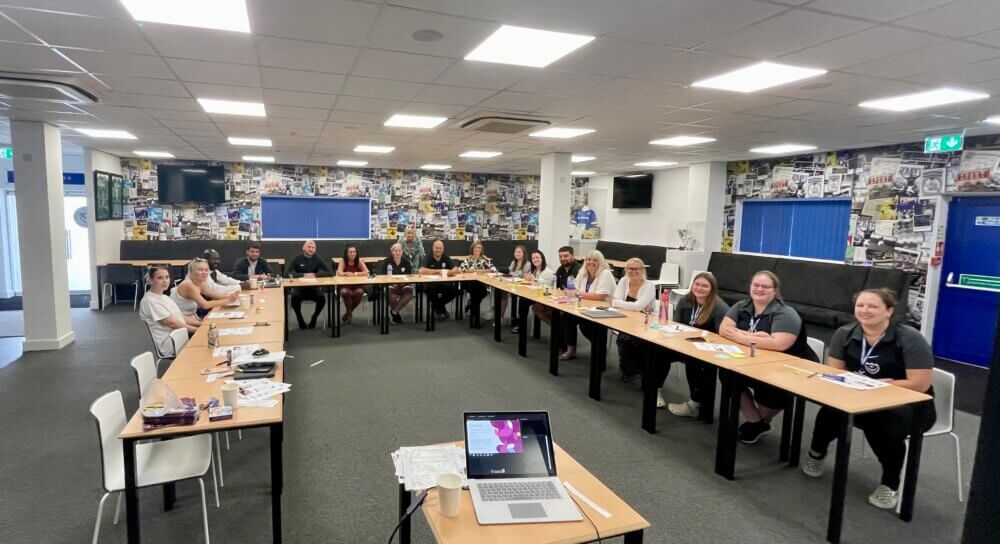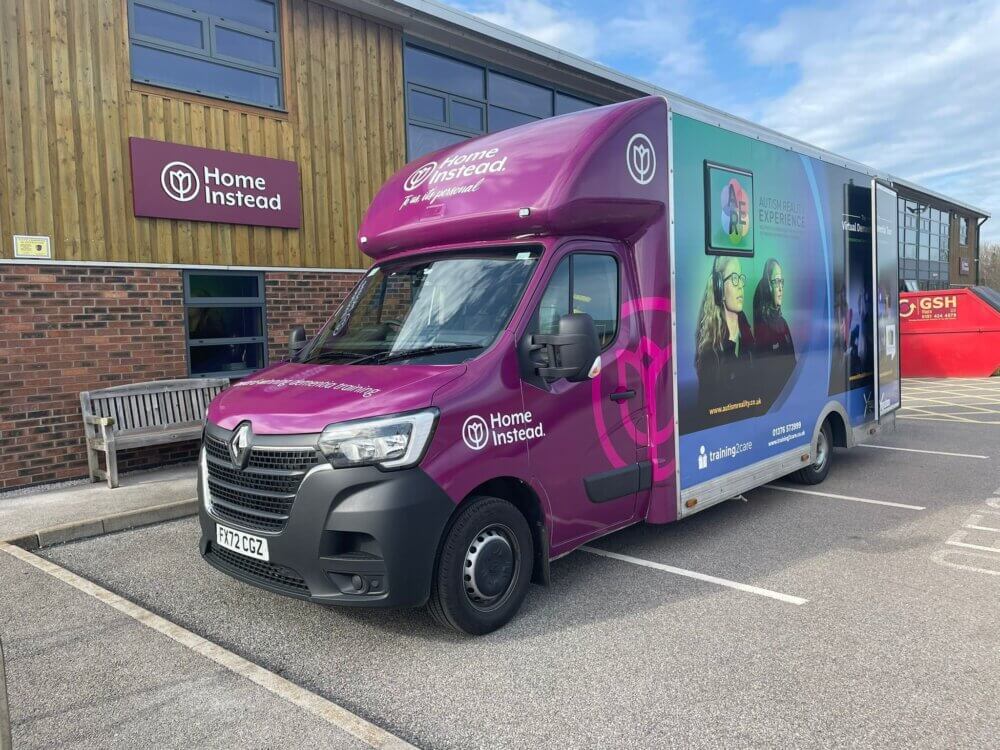
Brain Injury Home Care & Support
Home Instead can provide support to you and your loved ones following an acquired brain injury. We understand that a brain injury can impact you and your loved ones in different ways, so we tailor our care to your needs, in the place you call home.
How can we support you at home following a brain injury?
At Home Instead, we can offer flexible, practical and emotional support following your brain injury. We understand that there is no one-size-fits-all care for helping you recover from a brain injury. That’s why ourCare Professionals provide support in a range of ways to meet your individual needs, such as hourly care, longer hours, or even live-in care to support you at home.

Care Tailored to Your Needs
We put you and your care needs at the heart of our service. Our Care Professionals are fully trained to deliver care specific to your needs, and will work with your own doctors, specialists, rehabilitation centre, therapists and other health teams to ensure you are receiving the best possible care available. Our Care Professionals will provide the right level of assistance according to the requirements of your specific needs following your brain injury.
- Enhance your independence and support you within your community.
- Potentially reduce health complications and hospital admissions.
- Assist with yourtreatment following your brain injury and management plan.
- Work with you and your health care team when reviewing your care needs.

How can we help?
We've helped thousands of families to stay safe, comfortable and happy at home. Whatever situation you're facing, or whatever the question is, Home Instead is here to help.
Are you in need of a little guidance right away?
03300 583450Are you in need of a little guidance right away?
03300 583450Get in touch today to
see how we can help
What is an acquired brain injury?
An acquired brain injury (ABI) is where brain damage has occurred. This can be fafter birth, rather than as a part of a genetic or congenital disorder. For example, an ABI can occur due to trauma to the head, disease or infection, oxygen deprivation, alcohol or drug abuse, or a stroke.
The long-term effects vary from person to person, and are impossible to predict. They may manifest as physical effects, such as fatigue or motor disorders, mental effects, such as memory loss or aphasia, or emotional and behavioural effects, such as depression or self-control issues.

What is ABI care?
ABI care is available to support you in any way you need, tailored to your symptoms. From assistance with daily tasks such as household cleaning, laundry, personal care, medication administration, meal preparation, and assistance with mobility and getting out into the community, to more specific support, including complex health requirements such as catheters, gastrostomy tubes, or tracheostomy tubes. We can also support you with any external rehabilitation programmes you may be following.

The benefits of ABI care
Our Care Professionals are fully trained and competent in your specialist care needs. With the appropriate training in relation to your ABI classification, they will help you during even the most acute rehabilitation phases. Evidence suggests effective professional support helps reduce the number of possible complications and the need for hospital admissions. Although long-term outcomes can depend upon the type and severity of the injury, treatment and rehabilitation is crucial to recovery.

Why choose ABI care at home?
Receiving health care with Home Instead allows you to maintain your independence, routine, and lifestyle, so you can live your best life at home. Home Instead will work with you to match your Care Professional to your interests and hobbies so that you can build a trusting relationship with them. We will liaise with you and your clinical team to guarantee that the best care is delivered to the highest standard, ensuring a fully bespoke and tailored care plan is provided depending upon your needs. With Home Instead, care is carried out when you need it, not when it suits others.

Advice & Support

Pre-Bereavement Grief
Discover more

Looking for Respite Care? Look no further than the home
Discover more

Why getting Respite Care is the trick to being a good family caregiver
Discover more

New Dementia Training
Discover more

Making communities dementia friendly
Discover more

Stepping into the shoes of someone with dementia with Training2Care’s Dementia Bus
Discover more
FAQs
What is brain injury rehabilitation?
Following a brain injury, processes from damaged brain cells can be passed on to other parts of the brain, an ability referred to as brain ‘plasticity’. Brain injury rehabilitation helps support you as this occurs, starting in hospital and carrying on when you are home. Due to the nature of the injury, there will be a learning curve for you and your loved ones, which can be stressful. Having support at home during this time can provide a great level of comfort.
What symptoms can I have from an acquired brain injury?
The symptoms you may experience depend on the severity of the ABI. Even a mild injury can cause someone to experience loss of consciousness, dizziness, memory and concentration problems, headaches, mood changes, and sensitivity to light or sound. More severe injuries can lead to slurred speech, loss of control over bodily functions, and convulsions.
How long will I need care for?
Given the range in severity of an acquired brain injury, there’s no one time frame for how long it may take someone to recover. For some people, recovery may still leave long-term limitations and lingering symptoms that will impact their quality of life. Having experienced Care Professionals working alongside your clinical team can help speed up the rehabilitation process, giving you back your independence.
Why is it good to receive this care at home?
Care in your own home offers familiarity while you undergo the recovery process, rather than being set to the routines of a specialised care setting. We can help you live your life how you want while you receive care from our experienced Care Professionals.






